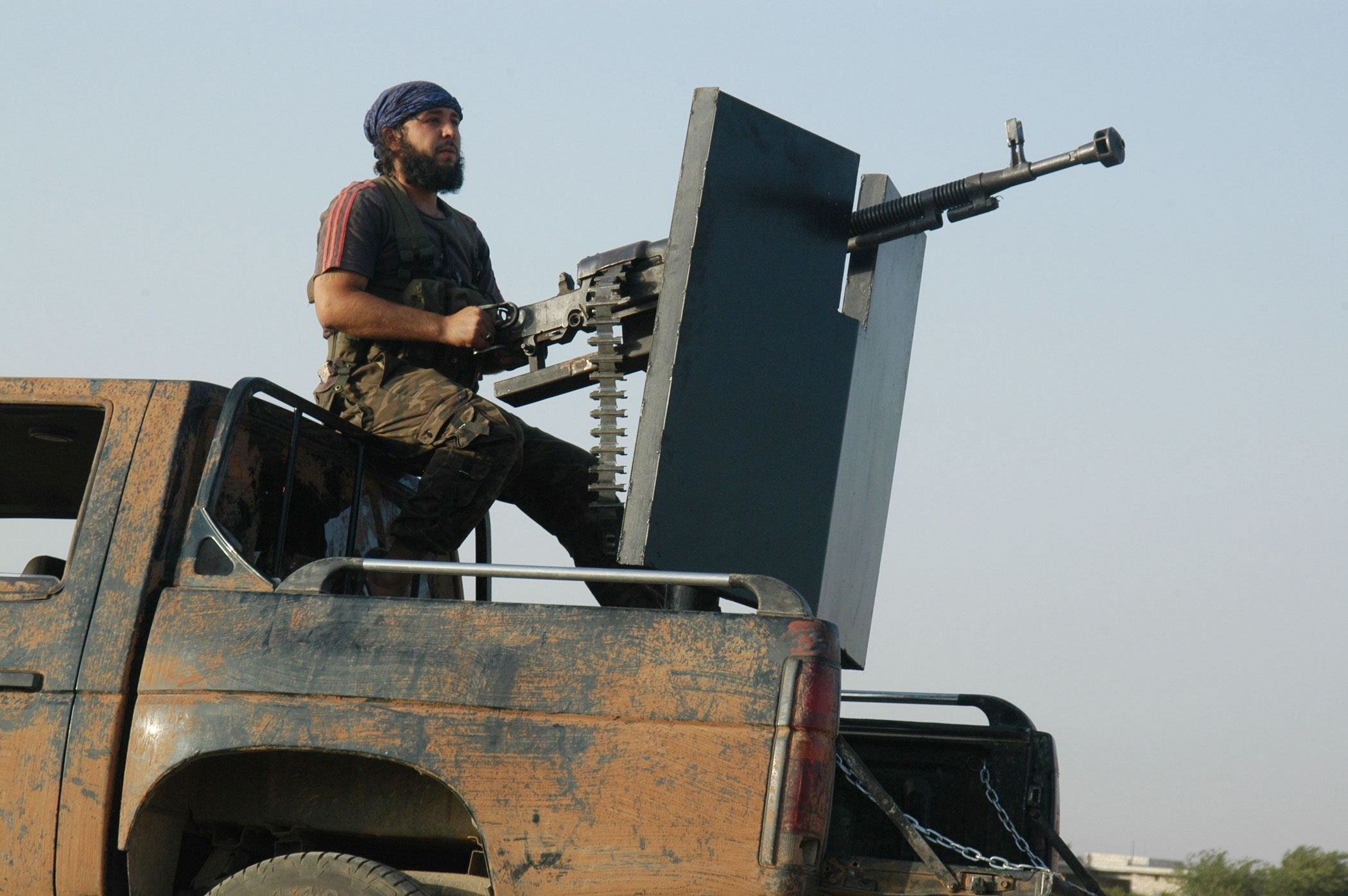
In April, when videos began appearing online of bearded Syrian fighters firing anti-tank missiles and chanting “God is great”, there were questions about how they had obtained the U.S.-made weapons but few answers. The U.S. government does not comment on details of what weapons they have provided or to whom.
Many of the fighters in the videos were from the Hazem Movement, a large and moderate faction of the Free Syrian Army (FSA), which controls strategic parts of the battlefield in Syria as it fights Bashar al-Assad’s regime in Damascus.
While the source of the weapons remains unclear, the Hazem Movement has long sought U.S. involvement in the Syrian conflict. But they were also the first to come out against the U.S.-led airstrikes on Islamic State of Iraq and Greater Syria (ISIS) in the country. “No Syrian was consulted in these strikes,” Khalid Saleh, secretary general for the Hazem Movement, said last week.
The reason is that, like many rebels in Syria, the Hazem Movement remains focused on deposing Assad, not fighting ISIS.
American efforts, on the other hand, are aimed at degrading ISIS’s infrastructure and capabilities. Crucially, the U.S. has ruled out putting any of its own troops on the ground in Syria. Instead, the plan is to arm and train moderate rebels there. On Friday, 20 rebel commanders—including those who oversee the FSA—signed a pact in Turkey to work together to defeat ISIS. In many locations, these fighters are taking on both the regime and rival militants.
But turning the anti-Assad militias that make up the FSA into an effective anti-ISIS fighting force will be a challenge, according to Kenneth M. Pollack, a former CIA analyst and specialist in the Middle Eastern affairs at the Brookings Institution. “The first problem is the FSA as it exists, is an extremely fractious group, with a dozen, maybe even a hundred little groups of people,” he says. “That’s not an ideal force.”
The first obstacle is how to figure out which individuals to trust with military hardware, to ensure that weaponry doesn’t fall into the wrong hands. “The FSA is a porous organization and it has been deeply infiltrated by all manner of extremists and even intelligence influence from the regime itself,” said Pollack. “You need to go through this process to get rid of these bad actors. You got to promote the guys who are loyal, who are apolitical.”
Then there are the internal divisions within the FSA. The Mujahedeen Army, a moderate group which claims to have received some weapons from the U.S., and which shortly after its formation in January declared war on ISIS, says it has been successful at pushing ISIS fighters out of the countryside west of the Syrian city of Aleppo. “We are the group that can be relied on to head the fighting against ISIS,” said a spokesperson who would not give his real name, due to the sensitivity of the issue. The U.S. has not confirmed putting weapons in the hands of these fighters.
The Hazem Movement makes similar claims about its success against ISIS—claims which are disputed by the Mujahedeen Army. “They are very good with their rhetoric, however they are not the fighters that have been tested in battle or on front lines,” the spokesperson adds. “[The U.S.] needs to have operatives on the ground to assess these factions.”
To complicate matters for the U.S. and its allies, many FSA factions are loathed by Syrian citizens — and supporting groups that lack popular support could hurt the anti-ISIS effort. After three years of civil war inside the country, some of the groups have come to be seem more interested in self preservation than in the goals of the initial uprising against the Assad regime in 2011.
“Self-interest and localism are pretty rampant,” says Aymenn al-Tamimi, an expert on Syrian and Iraqi militants at the Philadelphia-based Middle East Forum. Many military groups and leaders control their own little patches of the warzone and may be hard-pressed to give that up to join a larger force under a single higher command. “Even if it is a stretch of a frontline that’s a quarter-mile long, that’s [their] turf,” says Pollack.
There is also a risk that Western support, instead of unifying moderate rebels, might in fact serve to further divide the FSA units. As the weapons and training begin to trickle to these rebel groups, some are bound to get more than others while many will get nothing at all. “There is a risk here of actually increasing factionalism,” says al-Tamimi, who also highlights the divergent aims of the various rebel groups. “The main divide is—do rebels want some kind of Islamic state or not?” he adds.
More Must-Reads from TIME
- How the Economy is Doing in the Swing States
- Democrats Believe This Might Be An Abortion Election
- Our Guide to Voting in the 2024 Election
- Mel Robbins Will Make You Do It
- Why Vinegar Is So Good for You
- You Don’t Have to Dread the End of Daylight Saving
- The 20 Best Halloween TV Episodes of All Time
- Meet TIME's Newest Class of Next Generation Leaders
Contact us at letters@time.com